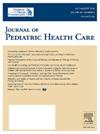Dispositional Gratitude in Adolescents with Type 1 Diabetes
IF 1.8
4区 医学
Q2 HEALTH POLICY & SERVICES
引用次数: 0
Abstract
Category/Date
Clinical Research Podium Presentations: NAPNAP Research Agenda Priority Topics: Mental Health, Pediatric Workforce and Infectious Disease Prevention. Presented at NAPNAP’s 46th National Conference on Pediatric Health Care, March 11, 2025.
Background & Significance
Type 1 diabetes (T1D) is a chronic condition requiring intensive, complex daily management. T1D negatively affects psychological well-being and is associated with increased anxiety symptoms. A grateful disposition and the daily practice of gratitude is associated with better psychological well-being in the general population. However, dispositional gratitude and psychological well-being among adolescents with T1D is not well understood.
Purpose/Aims
We aimed to examine associations between dispositional gratitude and anxiety symptoms in adolescents with T1D.
Methods
After obtaining IRB approval, we recruited adolescents 12-19 years of age, who could speak and read English fluently, and who were diagnosed with T1D for at least 6 months. We collected demographic data, measured anxiety symptoms (Generalized Anxiety Disorder-7), and gratitude (Gratitude Questionnaire-Six Item Form). We conducted descriptive statistics and Pearson correlations.
Results
Participants (n = 30) were mostly white (n=19, 63.3%), non-Hispanic (n=28, 93.3%), and female (n=20, 66.7%). Most participants had diabetes for greater than 5 years (n = 20, 66.7%) and used insulin pumps (n=29, 96.7%). Participants had a mean gratitude score of 34.57 (± 6.43), indicating high levels of gratitude, and a GAD-7 score of 7.17 (±5.07), indicating mild anxiety symptoms. Anxiety and gratitude were negatively correlated (-0.47, p=0.004). The impact of anxiety on daily life was negatively correlated with gratitude (-0.69, p < 0.001).
Discussion & Conclusion
Adolescents with T1D who have lower dispositional gratitude have higher anxiety symptoms. The practice of gratitude may be a modifiable factor through which to improve psychological wellbeing in this vulnerable population.
青少年1型糖尿病的性格感恩
类别/日期临床研究讲台演讲:NAPNAP研究议程优先主题:心理健康,儿科劳动力和传染病预防。于2025年3月11日在NAPNAP第46届全国儿科保健会议上发表。背景和意义1型糖尿病(T1D)是一种需要强化、复杂的日常管理的慢性疾病。T1D对心理健康产生负面影响,并与焦虑症状增加有关。在一般人群中,感恩的性格和日常感恩的实践与更好的心理健康有关。然而,性格感恩与青少年T1D的心理健康之间的关系尚不清楚。目的/目的我们旨在研究青少年T1D患者性格感恩与焦虑症状之间的关系。方法在获得IRB批准后,我们招募了12-19岁的青少年,他们可以流利地说英语和阅读英语,并且被诊断为T1D至少6个月。我们收集了人口统计数据,测量了焦虑症状(广泛性焦虑障碍-7)和感恩(感恩问卷-六项表)。我们进行了描述性统计和Pearson相关性分析。结果研究对象(n = 30)以白人(n=19, 63.3%)、非西班牙裔(n=28, 93.3%)和女性(n=20, 66.7%)居多。大多数参与者患有糖尿病超过5年(n = 20,66.7%),使用胰岛素泵(n=29, 96.7%)。参与者的平均感恩得分为34.57(±6.43),表明感恩程度很高,GAD-7得分为7.17(±5.07),表明焦虑症状轻微。焦虑与感恩呈负相关(-0.47,p=0.004)。焦虑对日常生活的影响与感恩呈负相关(-0.69,p < 0.001)。讨论与结论T1D青少年人格感恩水平越低,焦虑症状越严重。感恩的实践可能是一个可改变的因素,通过它可以改善这一弱势群体的心理健康。
本文章由计算机程序翻译,如有差异,请以英文原文为准。
求助全文
约1分钟内获得全文
求助全文
来源期刊

Journal of Pediatric Health Care
NURSING-PEDIATRICS
CiteScore
3.40
自引率
10.70%
发文量
140
审稿时长
24 days
期刊介绍:
The Journal of Pediatric Health Care, the official journal of the National Association of Pediatric Nurse Practitioners, provides scholarly clinical information and research regarding primary, acute and specialty health care for children of newborn age through young adulthood within a family-centered context. The Journal disseminates multidisciplinary perspectives on evidence-based practice and emerging policy, advocacy and educational issues that are of importance to all healthcare professionals caring for children and their families.
 求助内容:
求助内容: 应助结果提醒方式:
应助结果提醒方式:


